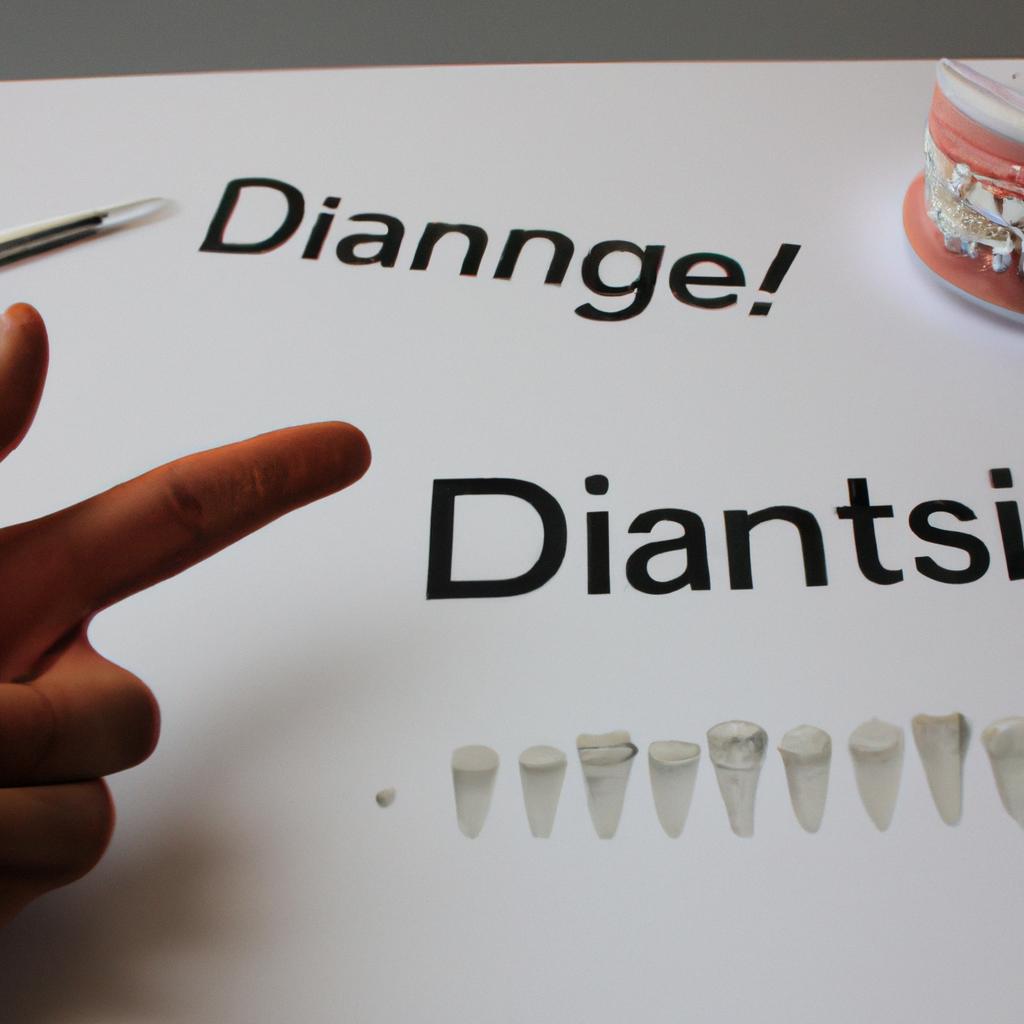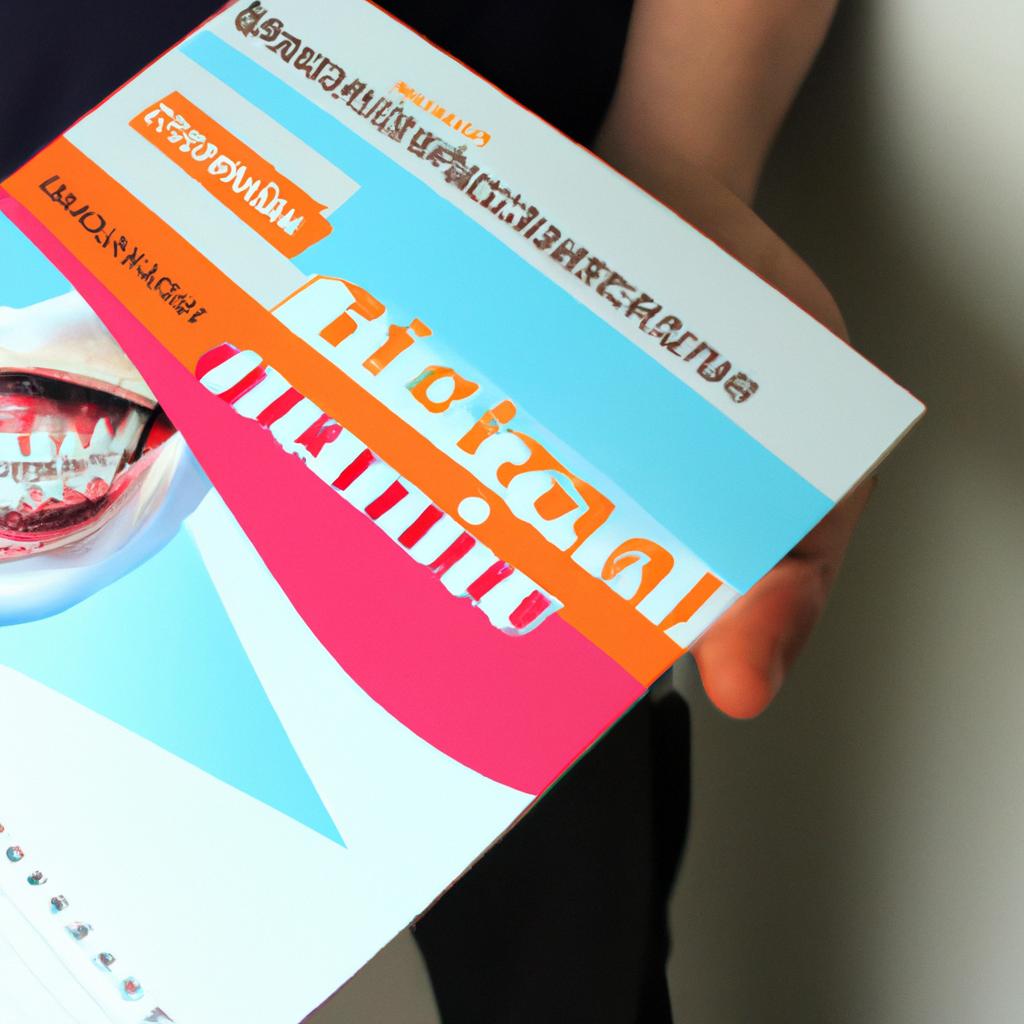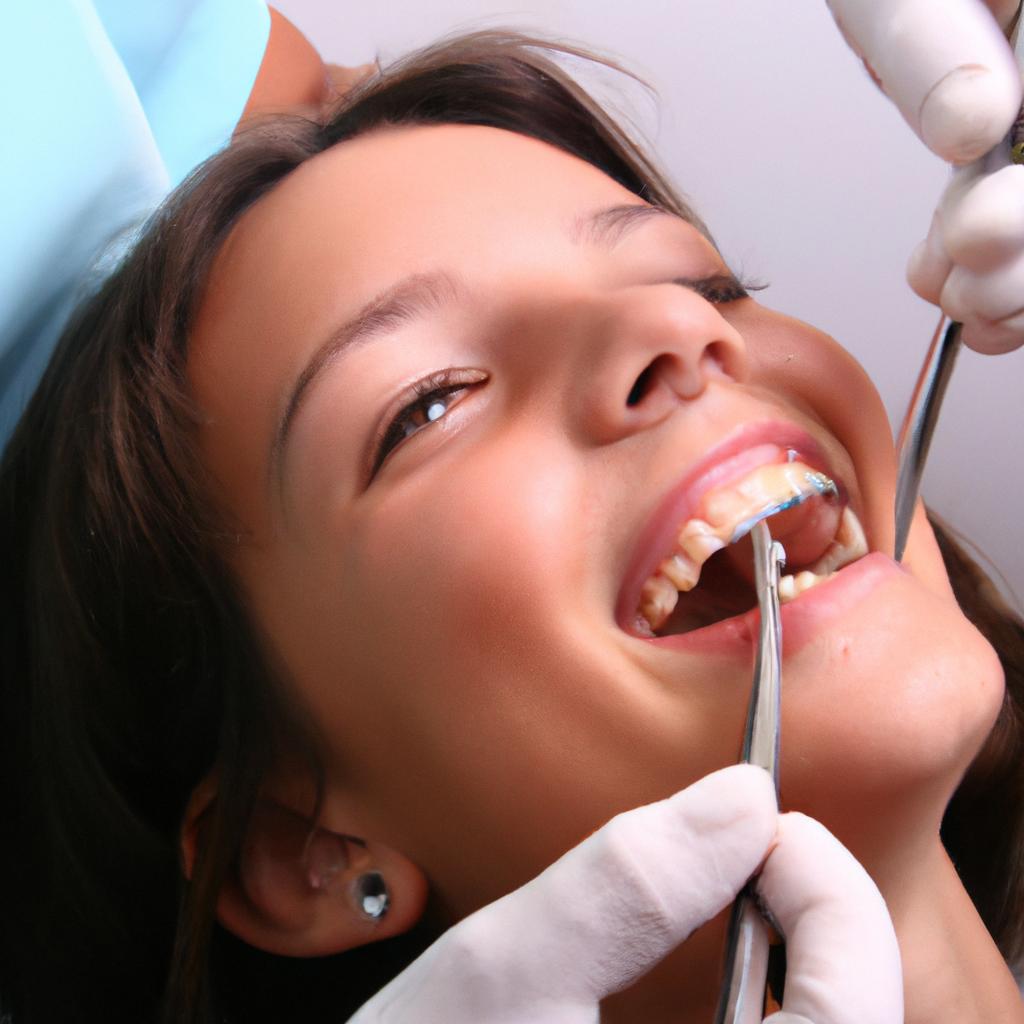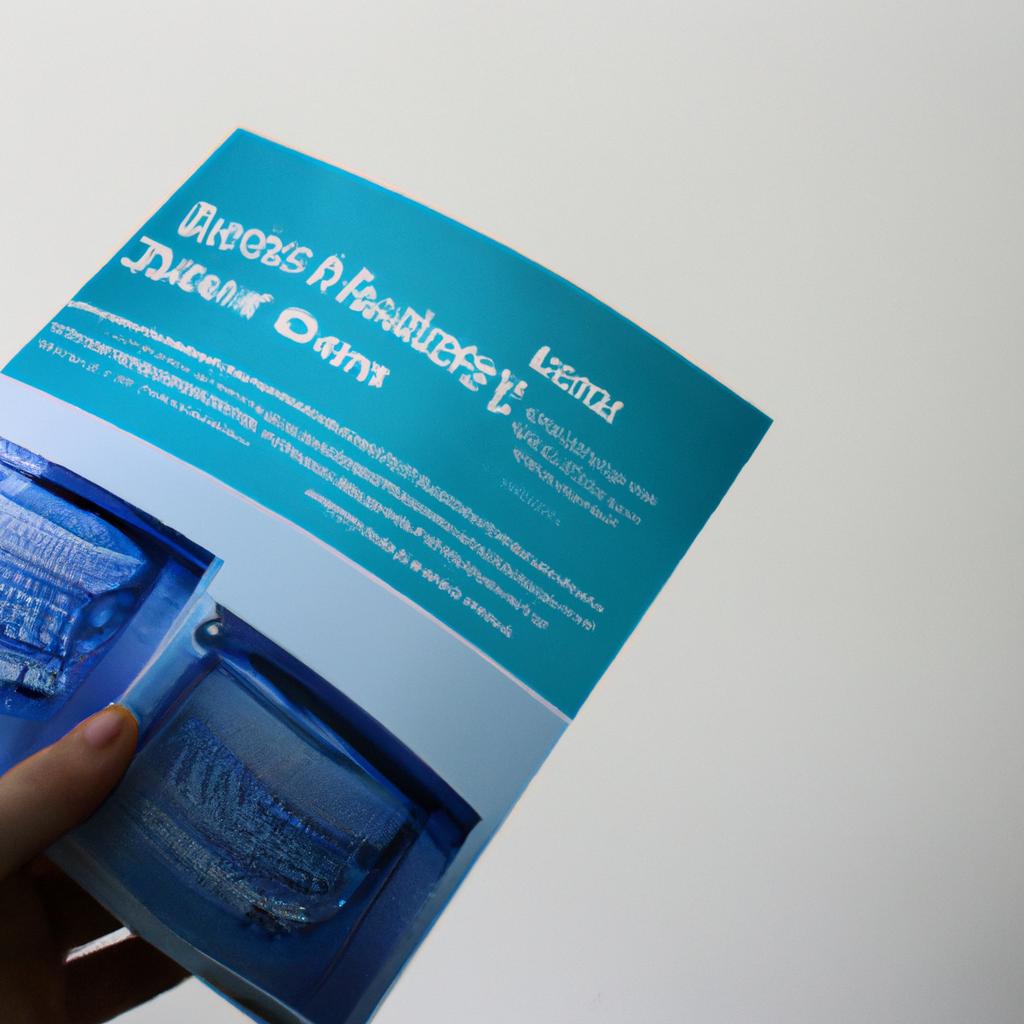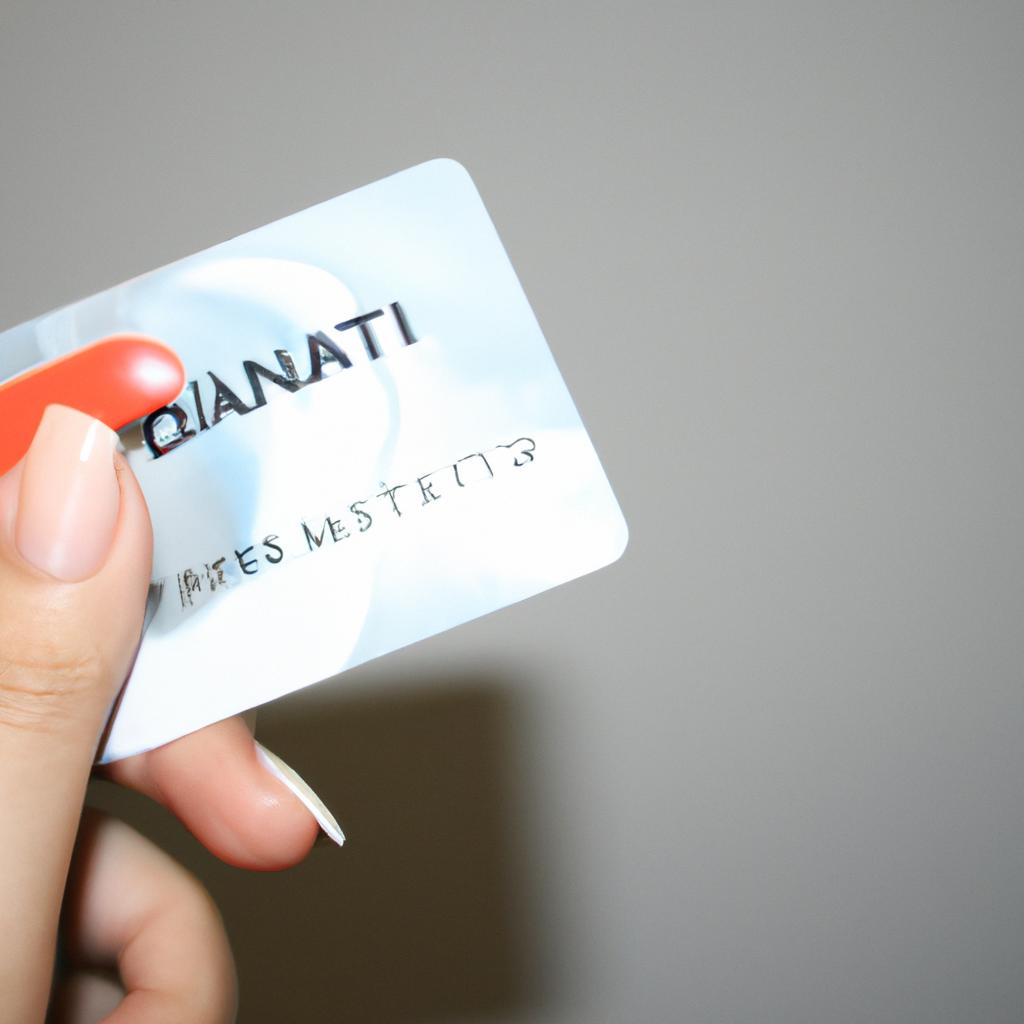Healthcare Credit Cards: Dental Financing for Dental Specialty
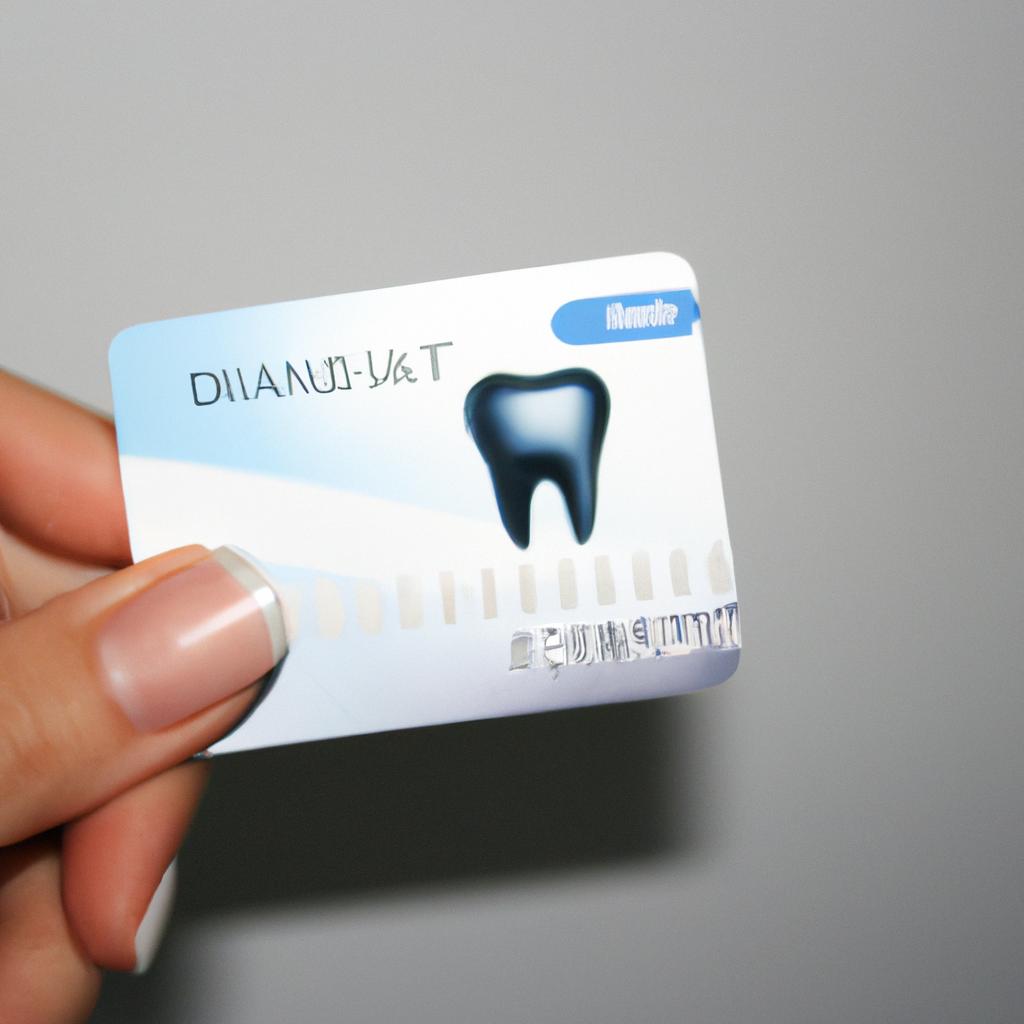
In today’s healthcare landscape, access to affordable dental care remains a significant concern for many individuals. Dental procedures, especially those falling under specialty categories, often come with hefty price tags that can strain even the most disciplined budgets. This financial barrier has led to the rise of alternative payment options such as healthcare credit cards specifically designed to address the unique financing needs of dental specialties.
For instance, consider a hypothetical case in which an individual requires extensive orthodontic treatment involving braces and other corrective devices. The cost of this specialized procedure alone may be overwhelming for patients without insurance coverage or sufficient savings. In such scenarios, healthcare credit cards tailored to dental financing present a viable solution by offering flexible repayment plans and competitive interest rates. These innovative financial tools not only provide immediate relief from exorbitant upfront costs but also empower patients to prioritize their oral health without compromising their overall financial well-being.
Amidst debates surrounding the availability and affordability of comprehensive dental care, exploring the role of healthcare credit cards in facilitating access to dental specialty services becomes imperative. By examining various aspects such as eligibility criteria, repayment terms, and potential benefits associated with these credit instruments, this article aims to shed light on how they contribute towards easing the burden of out-of-pocket expenses while ensuring optimal oral health outcomes for individuals in need of specialized dental care.
When it comes to eligibility criteria, healthcare credit cards for dental financing typically have relatively lenient requirements. These cards are often available to individuals with a wide range of credit scores, making them accessible to a broader patient population. This inclusivity ensures that people who may not qualify for traditional loans or other forms of credit can still receive the necessary dental treatment they require.
Repayment terms offered by healthcare credit cards vary depending on the provider and specific financial product. However, many options feature promotional periods with low or zero-interest rates for a specified duration. This allows patients to spread out their payments over time without accruing significant interest charges. Additionally, some healthcare credit cards offer extended repayment plans beyond the promotional period, providing flexibility and convenience for individuals looking to manage their expenses within their means.
One of the key benefits associated with healthcare credit cards tailored to dental financing is the ability to access immediate care without delay. Unlike traditional loans that may involve lengthy approval processes, these credit instruments often provide instant approval at participating dental offices. This streamlines the payment process and enables patients to commence their treatment promptly, preventing further complications or delays in addressing oral health concerns.
Furthermore, healthcare credit cards designed specifically for dental services may come with additional perks such as discounts on procedures or treatments not covered by insurance plans. These benefits can further enhance affordability and incentivize individuals to seek necessary specialty dental care without postponement.
It is worth noting that while healthcare credit cards present an attractive solution for managing upfront costs associated with specialized dental procedures, responsible usage is crucial. Patients should carefully consider their repayment capabilities and evaluate interest rates and fees associated with these financial tools before committing to any agreement. It is also recommended to explore other potential avenues for assistance such as insurance coverage or alternative financing options provided by dental offices themselves.
In conclusion, healthcare credit cards tailored to dental financing play a vital role in improving access to specialized dental care by alleviating the financial burden for individuals. These credit instruments offer flexible repayment terms, competitive interest rates, and instant approval, allowing patients to prioritize their oral health without compromising their overall financial well-being. However, responsible usage and careful consideration of options are essential to ensure optimal outcomes in managing dental expenses.
What are healthcare credit cards?
Healthcare credit cards have become an increasingly popular option for individuals seeking financial assistance in covering their dental expenses. These specialized credit cards are specifically designed to provide a convenient and flexible way to finance various dental procedures, ranging from routine cleanings to more complex treatments such as orthodontics or oral surgery.
To illustrate the benefits of healthcare credit cards, let’s consider the case of Sarah, who requires extensive dental work including fillings, root canals, and crowns. Despite having dental insurance coverage, Sarah finds herself facing substantial out-of-pocket costs that she cannot afford all at once. In this situation, a healthcare credit card could help alleviate her financial burden by allowing her to spread out the payments over time while still receiving the necessary treatment.
One key advantage of healthcare credit cards is their accessibility and ease of use. Unlike traditional loans or lines of credit, these specialized cards often come with minimal application requirements and quick approval processes. Additionally, many healthcare providers accept them as a form of payment, making it seamless for patients to access needed care without delay or additional paperwork.
The emotional aspect also comes into play when considering healthcare credit cards. They offer peace of mind knowing that individuals have a reliable financing option readily available whenever unexpected dental issues arise. Here are some notable ways in which healthcare credit cards can evoke an emotional response:
- Flexibility: Patients can choose repayment plans that suit their budgetary constraints.
- Convenience: Immediate access to funds allows timely treatment without worrying about delayed reimbursements from insurance companies.
- Affordability: With competitive interest rates and promotional offers like zero-interest periods, healthcare credit cards make expensive procedures more financially manageable.
- Empowerment: Having control over one’s oral health by being able to proceed with recommended treatments promptly reinforces a sense of self-care and well-being.
In summary, healthcare credit cards offer a practical solution for individuals seeking dental financing. By providing access to funds, ease of use, and emotional reassurance, these cards are becoming an increasingly popular choice among patients in need of affordable dental care.
Moving forward into the subsequent section on “Benefits of healthcare credit cards for dental procedures,” it is important to delve deeper into the advantages that make these cards a preferred option for many individuals seeking oral health treatments.
Benefits of healthcare credit cards for dental procedures
Healthcare credit cards are an effective financial tool that can provide individuals with the means to finance various dental procedures. These specialized credit cards offer specific benefits tailored to meet the unique needs of patients seeking dental care. For instance, consider a hypothetical case study involving Sarah, who requires extensive orthodontic treatment but is unable to afford the upfront costs out of pocket.
One key advantage of healthcare credit cards for dental procedures is their ability to offer flexible payment plans. This allows patients like Sarah to break down the cost of expensive treatments into manageable monthly installments, easing the burden on their finances. By spreading out payments over time, these credit cards make it more feasible for individuals to proceed with necessary dental work without compromising their overall financial well-being.
In addition to offering convenient installment options, healthcare credit cards often come with low or even zero interest rates during promotional periods. This feature provides further relief by reducing or eliminating additional charges typically associated with traditional financing methods such as personal loans or standard credit card usage. Sarah could benefit from this advantageous feature by utilizing a healthcare credit card specifically designed for dental specialty financing and avoid accumulating high levels of debt due to interest fees.
- Accessible funding: Individuals can obtain immediate access to funds that cover any expenses related to their dental treatment.
- Wide acceptance: Healthcare credit cards are widely accepted at participating providers, ensuring that patients have ample choices when selecting a dentist or specialist.
- No collateral required: Unlike other forms of financing, healthcare credit cards generally do not require collateral such as home equity or personal assets.
- Potential rewards programs: Some healthcare credit cards may also include reward systems where users earn points or cashback incentives based on their spending habits.
To emphasize these advantages further, let us present them in a table format:
| Advantages of Healthcare Credit Cards |
|---|
| Accessible funding |
In conclusion, healthcare credit cards for dental procedures offer flexible payment plans, low or zero interest rates during promotional periods, and a range of benefits that make them an attractive option for individuals seeking to finance their dental care. By breaking down the cost of treatment into manageable installments, patients like Sarah can proceed with necessary procedures while maintaining control over their finances.
How to apply for a healthcare credit card
Having explored the benefits of healthcare credit cards for dental procedures, let us now delve into the process of applying for a healthcare credit card. To illustrate this further, consider the following hypothetical case study:
Case Study:
Sarah is in need of extensive dental work that falls under a specialty category. She has been advised by her dentist that she requires oral surgery, which comes with a hefty price tag. Sarah does not have sufficient funds to pay for the procedure upfront, but she wants to explore options that can help make it more affordable.
Applying for a healthcare credit card offers individuals like Sarah an opportunity to finance their dental procedures conveniently. Here are some key steps and considerations when applying for a healthcare credit card:
-
Research different providers: Start by researching various financial institutions or lenders that offer healthcare credit cards specifically tailored for dental expenses. Compare interest rates, repayment terms, and any additional fees associated with these cards.
-
Check eligibility criteria: Each provider may have specific eligibility requirements such as minimum income thresholds or credit score benchmarks. Ensure you meet these criteria before proceeding with your application.
-
Gather necessary documents: Prepare all relevant documentation required during the application process. This may include proof of identity, proof of residence, employment details, and income verification.
-
Submitting the application: Once you have chosen a suitable healthcare credit card provider and gathered all necessary documents, submit your completed application either online or through physical means as per the instructions provided by the institution.
- Relief from immediate financial burden
- Ability to receive timely treatment without delay
- Opportunity to improve overall oral health and well-being
- Enhanced quality of life through restored confidence in one’s smile
Emotional Table:
| Emotional Benefit | Example |
|---|---|
| Financial Security | John was able to afford his daughter’s braces thanks to HCC |
| Peace of Mind | Lisa no longer worries about unexpected dental emergencies |
| Confidence Booster | Mike regained his self-esteem after getting a smile makeover |
| Health Improvement | Sarah’s oral health significantly improved through necessary care |
Understanding the application process and potential benefits of healthcare credit cards, it is now crucial to consider how to choose the right one for your specific dental specialty needs.
Choosing the right healthcare credit card for dental specialty
Having understood the process of applying for a healthcare credit card, let us now delve into choosing the right healthcare credit card specifically tailored to meet the needs of dental specialty financing.
Choosing the right healthcare credit card is crucial as it determines how effectively you can manage your dental expenses. Consider this hypothetical scenario: Sarah has recently visited a dentist specializing in orthodontics and requires extensive treatment that includes braces, retainers, and other orthodontic appliances. To finance her dental care, she decides to apply for a healthcare credit card designed for dental specialties. Let’s explore some key factors to consider when selecting such a credit card:
- Interest Rates and Fees:
- Compare interest rates offered by different providers.
- Look out for hidden fees like annual charges or late payment penalties.
- Check if there are any promotional offers available that could save you money.
- Provider Network:
- Ensure that the healthcare credit card is accepted by dentists within your preferred network.
- Confirm whether your chosen dental specialist accepts payments through this specific credit card.
- Verify if there are any restrictions on which services or procedures are covered by the card.
- Credit Limit and Repayment Options:
- Determine your desired credit limit based on anticipated treatment costs.
- Evaluate repayment options such as interest-free periods or fixed monthly installments.
- Additional Benefits:
Markdown bullet point list example:
- Access to exclusive discounts on additional dental treatments and services
- Rewards programs offering cashback or points redeemable towards future dental expenses
- Extended warranties or protection plans for certain types of treatments
In addition to these considerations, it may be helpful to consult with your dentist or seek recommendations from friends or family who have previously utilized healthcare credit cards for their own dental needs. By carefully evaluating these factors, you can make an informed decision regarding the most suitable healthcare credit card option for your particular requirements.
Now that we have explored how to choose the right healthcare credit card for dental specialty financing, let us address some common misconceptions about these credit cards.
Common misconceptions about healthcare credit cards
Having understood the importance of choosing the right healthcare credit card for dental specialty, let us now address some common misconceptions associated with these financial tools.
Common Misconceptions about Healthcare Credit Cards
Misconception 1: High interest rates make healthcare credit cards unaffordable
Many individuals assume that healthcare credit cards come with exorbitant interest rates, making them financially burdensome. However, this is not always the case. While it is true that some healthcare credit cards may have higher interest rates compared to traditional credit cards, they often offer promotional periods with zero or low-interest rates for a certain duration. Additionally, if you are able to pay off your balance within the promotional period, you can avoid accruing any interest altogether.
Misconception 2: Healthcare credit cards limit treatment options
Another misconception surrounding healthcare credit cards is that they restrict patients’ choices regarding treatment providers and procedures. In reality, most healthcare credit cards do not impose limitations in terms of which dental specialists or treatments you can choose. These financing options aim to provide flexibility and convenience by allowing patients to access the care they need without being limited by specific networks or providers.
Misconception 3: Approval process for healthcare credit cards is complicated
Some people believe that applying for a healthcare credit card involves a complex approval process similar to medical insurance applications. However, obtaining a healthcare credit card is typically straightforward and convenient. Many issuers offer online applications with quick approvals, ensuring minimal hassle during the application process. Moreover, eligibility criteria often focus more on an individual’s creditworthiness rather than their medical history or pre-existing conditions.
Misconception 4: Healthcare credit cards only cover major procedures
There is a misconception that healthcare credit cards primarily cater to expensive and major dental procedures like orthodontics or oral surgeries. On the contrary, these financing options can be used for both routine preventive care as well as more extensive treatments. They can cover a wide range of dental services, including cleanings, fillings, crowns, and even cosmetic procedures. This versatility allows patients to address their oral health needs comprehensively without straining their finances.
- Flexibility in choosing treatment providers
- Accessible online application process
- Ability to finance routine dental care
- Promotional periods with low or zero-interest rates
Markdown table:
| Misconception | Fact |
|---|---|
| High interest rates make healthcare credit cards unaffordable | Many offer promotional periods with low or zero-interest rates |
| Healthcare credit cards limit treatment options | Patients have flexibility in choosing providers and treatments |
| Approval process for healthcare credit cards is complicated | Online applications with quick approvals are common |
| Healthcare credit cards only cover major procedures | Can be used for routine preventive care and various treatments |
In conclusion, debunking these misconceptions reveals the potential benefits that healthcare credit cards provide for individuals seeking dental specialty financing. Now let us explore some tips on effectively managing healthcare credit card debt.
Tips for managing healthcare credit card debt
Despite the common misconceptions surrounding healthcare credit cards, they can be a valuable tool for individuals seeking dental financing in specialized areas of dentistry. One such area is dental specialty treatments, which often require extensive procedures and higher costs compared to routine dental care. In this section, we will explore how healthcare credit cards can offer financial support specifically tailored to meet the needs of patients undergoing dental specialty treatments.
Case Study:
To illustrate the benefits of healthcare credit cards for dental specialty financing, let us consider the case of Mr. Johnson, who required orthodontic treatment to correct his severe malocclusion. The estimated cost of his treatment was $5,000, an amount beyond what he could pay upfront. By utilizing a healthcare credit card designed for dental financing, Mr. Johnson was able to divide the cost into affordable monthly payments with little or no interest over a specified period. This allowed him to receive the necessary orthodontic treatment without compromising his budget or postponing the procedure.
Benefits of Healthcare Credit Cards for Dental Specialty Financing:
- Flexible Repayment Options: Healthcare credit cards provide flexible repayment plans that align with individual budgets and income levels, allowing patients to manage their expenses effectively.
- Low or No Interest Rates: Many healthcare credit cards offer promotional periods with low or zero-interest rates on specific treatments such as dental specialties, reducing the overall financial burden.
- Accessible Application Process: Applying for a healthcare credit card is typically straightforward and convenient, requiring minimal paperwork and expedited approval processes.
- Additional Perks and Benefits: Some healthcare credit cards may also include additional perks such as discounts on related services or rewards programs that incentivize responsible borrowing and prompt repayments.
Table – Comparison of Dental Specialty Financing Options:
| Financing Option | Pros | Cons |
|---|---|---|
| Healthcare | Flexible repayment options | High-interest rates |
| Credit Cards | Low or no interest rates during | Potential impact on credit score |
| promotional periods | ||
| Personal Loans | Lower interest rates compared to | Longer repayment terms |
| credit cards | May require collateral | |
| Dental | No or low-interest rates | Limited coverage for specific treatments |
| Insurance Plans | Can be used in conjunction with other | Pre-existing conditions may not be covered |
| financing options | May have waiting periods |
In summary, healthcare credit cards cater specifically to individuals seeking dental specialty financing by providing flexible repayment options and lower or zero-interest rates. These cards offer an accessible application process and often come with additional perks and benefits. However, it is essential to compare different financing options, such as personal loans and dental insurance plans, to determine the most suitable choice based on individual circumstances.
Please let me know if there is anything else I can assist you with!


